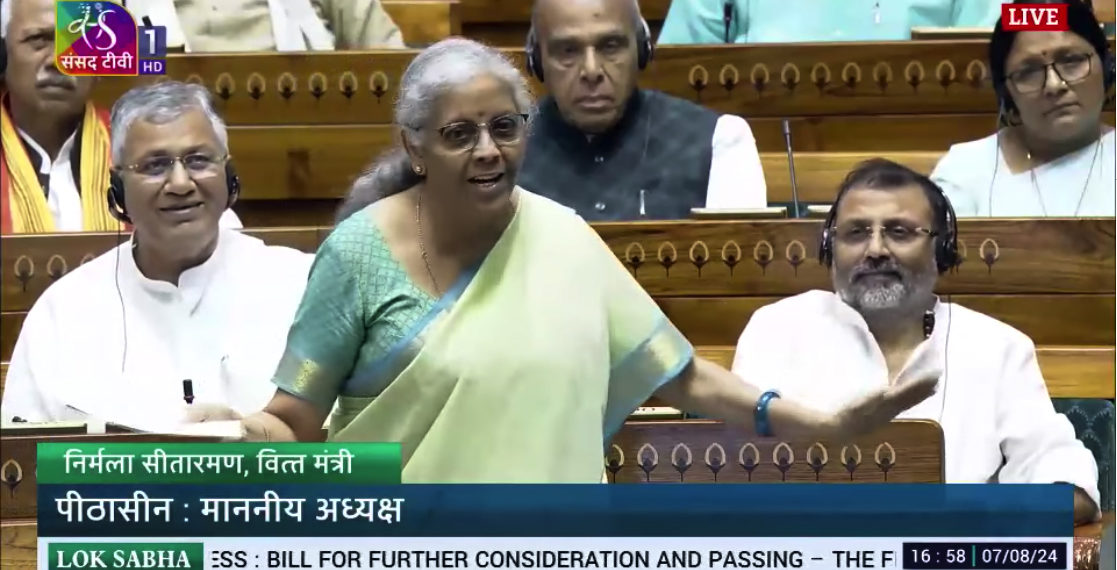The government has introduced the Banking Laws (Amendment) Bill, 2024, addressing several long-standing issues within the Urban Cooperative Banks (UCB) sector. The bill provides relief on matters such as the tenure of elected directors and the number of nominees per bank account, increasing it from one to four, among other changes.
Jyotindra Mehta, a senior UCB leader, praised the government, stating that the demand for an extended tenure for elected directors has been fulfilled. Satish Marathe, a leader of Sahakar Bharati, also expressed support, stating, “Sahakar Bharati welcomes the amendment. A long-standing demand of the cooperative bankers has been fulfilled by the Government of India.”
The proposed bill aims to improve governance standards, provide consistency in reporting by banks to the RBI, ensure better protection for depositors and investors, improve audit quality in public sector banks, and extend the tenure of directors (excluding the chairperson and whole-time director) in cooperative banks.
The key features of the bill include:
1. Amendments to Sections 45ZA, 45ZC, and 45ZE of the Banking Regulation Act:
The bill allows up to four nominees per account, including provisions for simultaneous and successive nominations, offering greater flexibility and convenience for depositors and their legal heirs, particularly regarding deposits, articles in safe custody, and safety lockers.
2. Amendments to Section 38A of the State Bank of India Act, 1955, and Section 10B of the Banking Companies (Acquisition and Transfer of Undertakings) Act, 1970/1980:
These changes enable the transfer of unclaimed dividends, shares, and interest or redemption of bonds to the Investor Education and Protection Fund (IEPF). Individuals can claim transfers or refunds from the fund, safeguarding investors’ interests.
3. Amendments to Sections 18, 24, 25, and 56 of the Banking Regulation Act and Section 42 of the RBI Act:
The bill revises the reporting dates for the submission of statutory reports by banks to the RBI, changing them from reporting on Friday to the last day of the fortnight, month, or quarter. This ensures consistency in reporting.
4. Amendments to Clause (i) of Sub-section (2A) of Section 10A of the Banking Regulation Act:
In alignment with the Constitution (Ninety-Seventh Amendment) Act, 2011, the tenure of directors (excluding the chairperson and whole-time directors) in cooperative banks will be extended from 8 years to 10 years.
5. Amendments to Clause (ne) of Section 5 of the Banking Regulation Act, 1949:
The definition of “substantial interest” is revised, increasing the threshold for shareholding from Rs. 5 lakh to Rs. 2 crores, reflecting the present value, as it was last fixed in 1968.
6. Amendments to Sub-section (3) of Section 16 of the Banking Regulation Act:
The bill permits a director of a Central Cooperative Bank to serve on the board of a State Cooperative Bank.
Earlier, Jyotindra Mehta had highlighted that in the Banking Regulation Act of 2020, all provisions regarding the appointment and tenure of directors of banking companies were made applicable to directors of cooperative banks, despite the fact that the latter are elected rather than appointed.
Mehta pointed out that Section 10 (2A) (i) of the Banking Regulation Act, 1949, as amended in September 2020, is neither in conformity with cooperative laws nor aligned with the provisions of the 97th Amendment of the Constitution of India.
Emphasizing the importance of the bill, Mehta noted that a vast majority of board members from 1,534 banks would have had to step down under the BR Act for having completed 8 years of service. “We have now heaved a sigh of relief,” he added.














































But Sec 56 (a) clause (c) for sub clause ii amendment will face difficult for CEOs